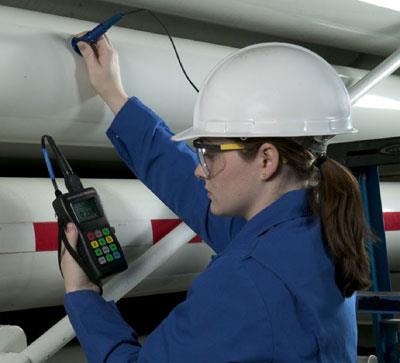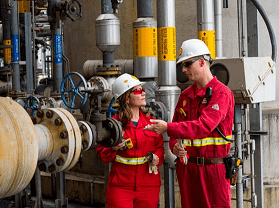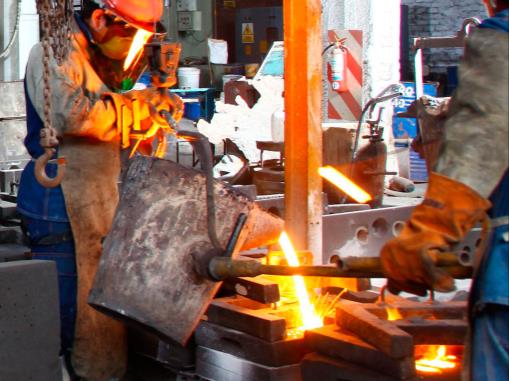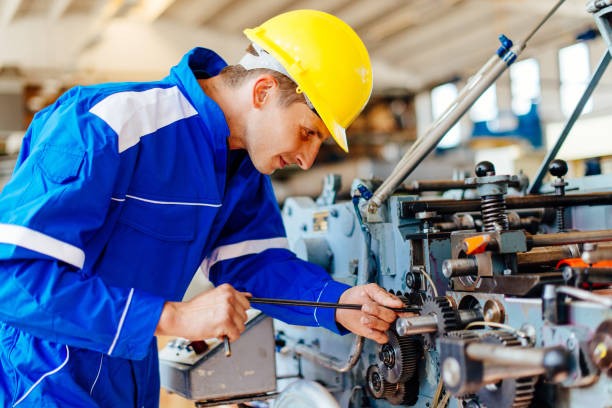COURSE OVERVIEW
FE0700 : API 570: Piping Inspector (API Exam Preparation Training)

OVERVIEW
| COURSE TITLE | : | FE0700 : API 570: Piping Inspector (API Exam Preparation Training) |
| COURSE DATE | : | Oct 20 - Oct 24 2025 |
| DURATION | : | 5 Days |
| INSTRUCTOR | : | Mr. Gert Viljoen |
| VENUE | : | Abu Dhabi, UAE |
| COURSE FEE | : | $ 5500 |
Course Description
This practical and highly-interactive course includes various practical sessions and exercises. Practical sessions will be performed using our equipment in order to apply the theory learnt in the class.
The piping system is one of the major assets of any process facility. Maintaining the integrity of the piping system is very critical for the safety and efficiency of the facility. Piping inspection is the first line of defense for maintaining the facility integrity and minimizing the maintenance cost.
API 570 Piping Inspection Code covers inspection, rating, repair, and alteration procedures for piping systems and their associated pressure relieving devices that have been placed in service. This inspection Code applies to all hydrocarbon and chemical process piping systems. The code specifies the in-service inspection and condition-monitoring program as well as repair guidance that is needed to determine and maintain the on-going integrity of piping systems.
This course is designed to provide delegates with a comprehensive overview of the latest API 570 certification program. It will prepare the inspectors to pass the API 570 examination in order for them to be certified as API 570 Inspectors. Course participants will receive in-depth instruction on the applicable codes and standards (API and ASME). They will discuss case studies, and solve homework & quizzes and gain the required knowledge for this high-level certification.
The next API 570 exam and have enough knowledge and skills to pass such exam in order to get the API 570 certification; the inspection, repair, alteration and rerating of in-service piping systems; the API 570 body of knowledge, scope, references, definitions, owner and user inspection organization; the inspection and testing practices, frequency and extent of inspection, inspection data evaluation, analysis and recording, repairs, alteration and rerating of piping systems as well as inspection of buried piping.
The scope, piping components, reasons for inspection, inspecting for deterioration in piping, frequency and time of inspection, and employ safety precautions and preparatory work as well as inspection tools, inspection procedures, determination of retirement thickness and records; the various design conditions and criteria, pressure design of piping components, fluid service requirements for piping components, fluid service requirements for piping joints, piping flexibility, materials, fabrication, assembly and erection, inspection, examination and testing as well as demonstrate nondestructive test methods; the welding discontinuities and discuss ASME section IX WPS and PQR.
Quizzes are given at the end of each section; homework is handed out at the end of each class day, which consists of 30 questions per day and is reviewed at the beginning of the following day, and a “practice” exam is administered at the end of the course.
Haward Technology is proud of its 90% pass rate on all our API sponsored courses.
link to course overview PDF
TRAINING METHODOLOGY
This interactive training course includes the following training methodologies:
LecturesPractical Workshops & Work Presentations
Hands-on Practical Exercises & Case Studies
Simulators (Hardware & Software) & Videos
In an unlikely event, the course instructor may modify the above training methodology for technical reasons.
VIRTUAL TRAINING (IF APPLICABLE)
If this course is delivered online as a Virtual Training, the following limitations will be applicable:
| Certificates | : | Only soft copy certificates will be issued |
| Training Materials | : | Only soft copy materials will be issued |
| Training Methodology | : | 80% theory, 20% practical |
| Training Program | : | 4 hours per day, from 09:30 to 13:30 |
This course is no longer available.
Please check below for other scheduled dates.
OTHER SCHEDULED DATES
| Refrence | Date | Location | Instructor | Fee (USD) | Outline | Actions |
|---|---|---|---|---|---|---|
| FE0700 | Feb 01 - Feb 05 2026 (5 Days) | Doha, Qatar | Mr. Tom Hankins | $ 6,000 | Outline | |
| FE0700 | Feb 09 - Feb 13 2026 (5 Days) | Abu Dhabi, UAE | Mr. Gert Viljoen | $ 5,500 | Outline | |
| FE0700 | Mar 29 - Apr 02 2026 (5 Days) | Dubai, UAE | Mr. Tom Hankins | $ 5,500 | Outline | |
| FE0700 | May 10 - May 14 2026 (5 Days) | Dubai, UAE | Mr. Tom Hankins | $ 5,500 | Outline | |
| FE0700 | Jun 22 - Jun 26 2026 (5 Days) | Abu Dhabi, UAE | Mr. Tom Hankins | $ 5,500 | Outline | |
| FE0700 | Aug 03 - Aug 07 2026 (5 Days) | Abu Dhabi, UAE | Mr. Tom Hankins | $ 5,500 | Outline | |
| FE0700 | Sep 06 - Sep 10 2026 (5 Days) | Istanbul, Turkey | Mr. Tom Hankins | $ 6,000 | Outline | |
| FE0700 | Oct 04 - Oct 08 2026 (5 Days) | Doha, Qatar | Mr. Tom Hankins | $ 5,500 | N/A | |
| FE0700 | Nov 15 - Nov 19 2026 (5 Days) | Al Khobar, KSA | Mr. Tom Hankins | $ 5,500 | Outline | |
| FE0700 | Dec 13 - Dec 17 2026 (5 Days) | Al Khobar, KSA | Mr. Tom Hankins | $ 5,500 | Outline | |
| FE0700 | Jan 10 - Jan 14 2027 (5 Days) | Dubai, UAE | Mr. Tom Hankins | $ 5,500 | N/A | |
| FE0700 | Mar 14 - Mar 18 2027 (5 Days) | Istanbul, Turkey | Mr. Tom Hankins | $ 6,000 | N/A |
RELATED COURSES

FE0985 : Thermal Infrared Testing Level-I Training & Certification (SNT-TC-1A)
- Date: Mar 14 - Mar 18 / 3 Days
- Location: Cairo, Egypt
- Course Details Register

FE0570 : API 579-1/ASME FFS-1: Fitness-for-Service (FFS) of Process Plant Equipment, Pressure Vessels, Piping & Storage Facilities
- Date: Mar 29 - Apr 02 / 3 Days
- Location: Al Khobar, KSA
- Course Details Register

FE0928 : Metallurgy for Non Metallurgist
- Date: Mar 29 - Apr 02 / 3 Days
- Location: Doha, Qatar
- Course Details Register

FE1021 : Materials and Testing Foundation
- Date: Mar 29 - Apr 02 / 3 Days
- Location: Istanbul, Turkey
- Course Details Register
